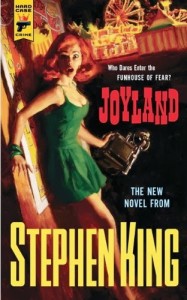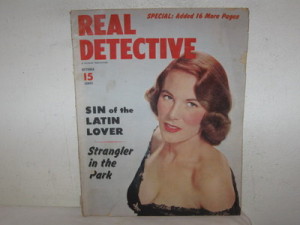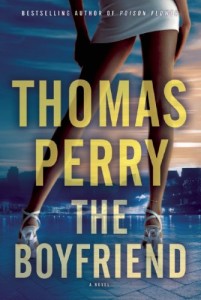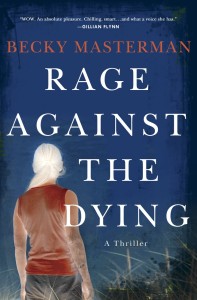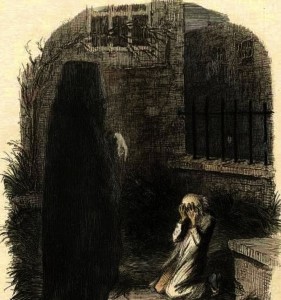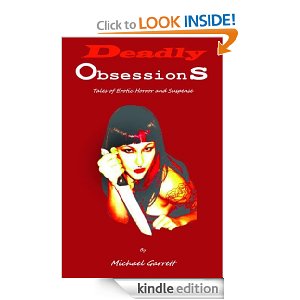Category Archives: Stephen King
How Things Have Changed
Hunting Down The Muse
I’m in a situation that I haven’t been in for four years. Now that I’ve delivered my latest book, I’m no longer under contract to a publisher expecting my next novel. This is the first time since I signed my first publishing contract in 2009 that I don’t have a hard deadline. It’s both a scary and liberating scenario because I have to decide what to write next.
Like every other author, I often get the dreaded question, Where do you get your ideas? I can usually come up with a response that sounds reasonable and interesting, but the real answer is that I don’t know where they come from. I wish I did. It would make everything so much easier. I wish I could flip a switch in my mind that goes, “Okay, Brain, time for the next idea. What sounds good to you?”
Instead, Brain usually tells me to buzz off. It’s much too busy forcing me to watch TV or worrying about whether I forgot to lock the car when I left it in the mall parking lot. Other times, Brain is throwing ideas at me left and right, many of which are versions of stories that have already been done, but dumber.
Brain: Hey, what about a book about a sea creature that terrorizes a small coastal town, but this time it’s a crazed man-eating jellyfish?
Me: I hate you.
But ideas typically aren’t a problem for an author. I’ve got plenty of ideas. I just have no clue whether any of them will make good stories. I’ve started at least eight books that never made it past page 150. A few of them never made it past page ten. Some of them may grow into full novels one day, but I also wouldn’t be surprised if none of them did.
The question for me is, how should I get started on the next book? Do I need a breather to gather a bunch of new ideas and select the right one or should I plunge back into it and trust that the alchemy will produce something worthwhile?
Some authors, like Stephen King, stick to their word count every day no matter what. They force themselves to hunt down the muse and throttle it until it gives up the goods. Other authors, like Chuck Palahniuk, can take a year off to recharge and explore the world until the pressure builds up so much that they have to sit down and write the story. The muse tells them when the story is ready to go.
I think Stephen King’s process works well for “pantsers,” authors who don’t outline and write without knowing where the story will take them. But I don’t know how that can work if you are a “plotter” and you outline and research to see how a story fits together. How can you write to a word count that day if you haven’t plotted out how the next scene contributes to the story?
One technique that I’m trying was suggested by my agent. It’s called the List of Twenty. You come up with a list of twenty of ideas for a novel. The first ten or so will be obvious, so obvious that someone else may be having the same idea as you’re typing (which is why we end up with situations like two movies this year about the White House being taken over by terrorists).
But when you exhaust those first ten ideas, you start having to come up with more unusual and off-the-wall ideas, and that’s where you find the gold. Those are the ideas likelier to be unique and amazing.
Even then, you may still come up with an idea similar to someone else’s, but your spin on it might be so intriguing that it’s worth doing anyway (look at how Suzanne Collins’s The Hunger Games explored a different take on the kids-fighting-to-the-death scenario that Koushun Takami’s Battle Royale had already established).
After having completed six novels, I thought this process would have gotten easier. It hasn’t, and I don’t think it ever will. But when that inspiration does strike and the muse becomes your partner in crime, the exhilaration makes all of the struggle worth it. For me, that’s the thrill of the hunt.
Living in the Past
Stag and Saga and the aforementioned For Men Only. The covers were always adventure-themed, with generic, very capable-looking Marlboro men rescuing women in danger of losing their lives or their underwear, in no particular order. The so-called “true detective” magazines ran a close second, with exciting article titles gracing lurid covers. A publication that met readers of both types of magazines was an irresistible piece of trashy wonder titled The National Police Gazette. The latter was an extremely popular periodical, though no one would admit it. When I was an altar boy (yes, I was) my school was selling magazine subscriptions as a fundraiser. I asked a geriatric priest I knew if he would be interested in purchasing any subscriptions. He asked, with a smile on his face and a twinkle in his eye, “Ya got Police Gazette?” I responded “I wish!” which brought a coughing fit on him so severe that I thought we were going to have to call the emergency squad.
How to Write a Short Story
James Scott Bell
@jamesscottbell
Who Is Reading What
Who Is Reading What
It seems as if I’ve spent the last two weeks doing nothing but driving. That of course isn’t entirely true but for various reasons I’ve had to make two or three round trips into downtown each day for the last fortnight, and while it has been interesting in some ways it has been mind-numbingly boring in others. I don’t have any witty advice (even of the half variety) wry observations, or heartfelt descriptions, sappy or otherwise, of what has occurred recently, at least that I care to recount right now. Maybe next time.
So…I thought I would just cut to the chase and ask a question: what book are you currently reading? I’ll go first. I am reading two books, actually. One is THE BOYFRIEND by Thomas Perry. It may be his best work so far. It concerns a private investigator in pursuit of a man who is killing high-priced escorts of a certain type, though never more than one in any specific city. The other is an extremely sure-footed debut novel by Becky Masterman and which is titled RAGE AGAINST THE DYING. It is narrated by its protagonist, a fifty-nine year old ex- FBI agent named Brigid Quinn. The book will go on sale on March 12; read the first sentence in the book and you will want to read the rest. That first sentence does everything it is supposed to do and more: it draws you in, makes you curious, scares the hell out of you and leads to even better things.
That’s me. My wife is reading ONE DAY AT A TIME by Danielle Steel and listening to another Steel book. MISERY by Stephen King is being read in fits and starts by my younger daughter (how in heaven’s name do you read MISERY in fits and starts? I read it once a year on a day which I set aside for that express purpose). My older son, for his part, is juggling a couple of John Sandford’s Lucas Davenport novels, as he works his way through the canon with the kind and occasional permission of my six year-old granddaughter, who in turn is reading an issue of Highlights for Children.
And you? And yours?
The Ghost of Writing Yet to Come
James Scott Bell
@jamesscottbell
‘Twas Two Weeks ‘fore Thanksgiving…
Baloney Advice Writers Should Ignore
Lights, Camera…
Now it can be told.


